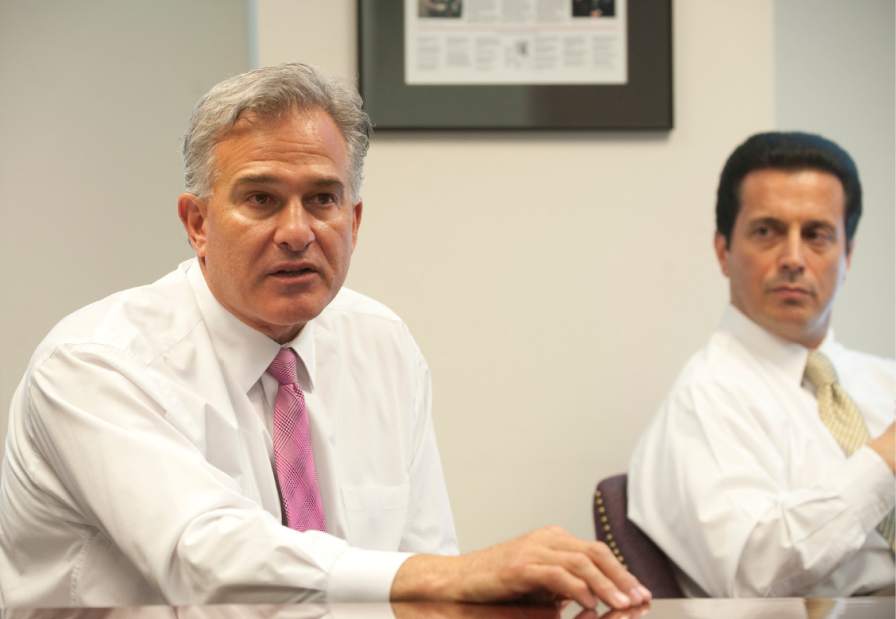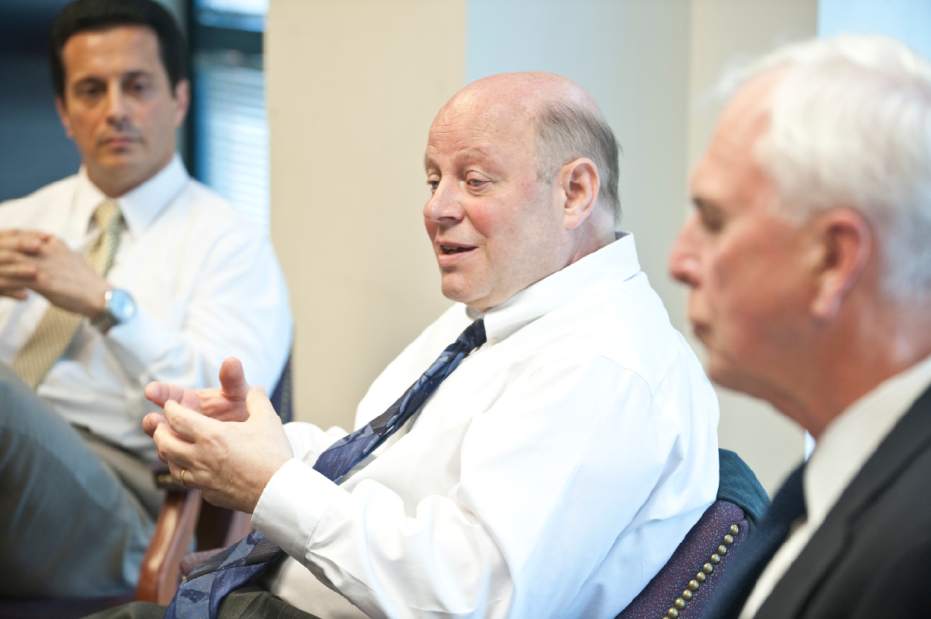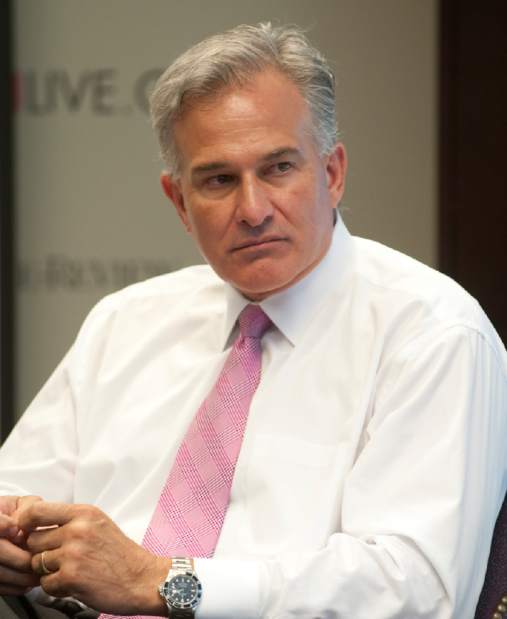Support builds for police body cameras in Western Pennsylvania
Public confidence in law enforcement is “probably at a historic low,” and police body cameras could help reverse that trend, a group of law enforcement officials, legal experts and lawmakers said Thursday in a sit-down with Trib reporters and editors.
Pittsburgh is seeking federal money to expand its use of body cameras, Allegheny County District Attorney Stephen A. Zappala Jr. said.
Meanwhile, state Sen. Stewart Greenleaf, R-Montgomery County, chair of the Senate Judiciary Committee, is preparing to introduce a bill to change the state's wiretapping law to address privacy concerns about body cameras.
Support for equipping officers with body cameras has grown as cases across the country have raised questions about police tactics.
Jeffrey A. Manning, Allegheny County Common Pleas president judge, said he has noticed a change in recent years in people's attitudes toward law enforcement.
When he began practicing law almost three decades ago, “One of the questions asked (during jury selection) was, ‘Would you tend to believe the testimony of an officer simply because of his job?' And nine out of 10 people would say, ‘Yes,' ” Manning said. “Today, you'd be lucky if it's three or four.”
“Public confidence in law enforcement is probably at a historic low,” said John Rago, a Duquesne University law professor who studies police practices. “You can't pick up the newspaper any day and see anything but that.”
Pittsburgh police were the first in Pennsylvania to pilot a body camera program. About 35 bicycle and motorcycle officers wear cameras on their helmets or shirt collars.
But plans to equip patrol officers with the devices have been on hold because of unresolved privacy concerns. The state's wiretap law prohibits recording inside a home or building without permission.
“This is an extraordinarily difficult provision for law enforcement to deal with,” Rago said.
Officers are more susceptible to an ambush if they have to stop and turn off their recording devices, he said.
“When you get a call to go to a house, you don't know what's on the other side,” Rago said.
Greenleaf plans to introduce legislation that would allow police to record someone without his or her permission with a body camera when they're called inside a home or building.
“It's consistent with current law, and it still respects privacy rights,” Rago said of the proposed legislation.
Zappala, Manning, Rago and Joseph A. Asturi, governmental affairs administrator for Pennsylvania's Fifth Judicial District, have pushed for body cameras as part of a “best practices” campaign.
They say the devices have been shown to de-escalate volatile situations, and they hope to persuade officials who oversee the county's 166 law enforcement agencies to equip officers with cameras.
Zappala said city officials approached him recently and asked if he would support their efforts to secure a federal grant to help pay for more body cameras.
Stephen Bucar, the city's Public Safety director, and Cameron McLay, Pittsburgh's police chief, could not be reached for comment.
The city has paid more than $5 million since 2010 to settle lawsuits alleging police brutality.
“I've talked to members of city council, and I've said, ‘Don't you guys get it?' ” Zappala said. With body cameras, “You can control your liabilities because it's no longer a one-on-one situation. You have objective evidence. You don't need a citizens review board. You got what you need.”
Mayor Bill Peduto has set aside $650,000 in this year's budget to buy body cameras for all of the city's nearly 900 officers. The federal government is expected to provide a 50 percent match, city officials have said.
Tony Raap is a staff writer for Trib Total Media. He can be reached at 412-320-7827 or traap@tribweb.com.



